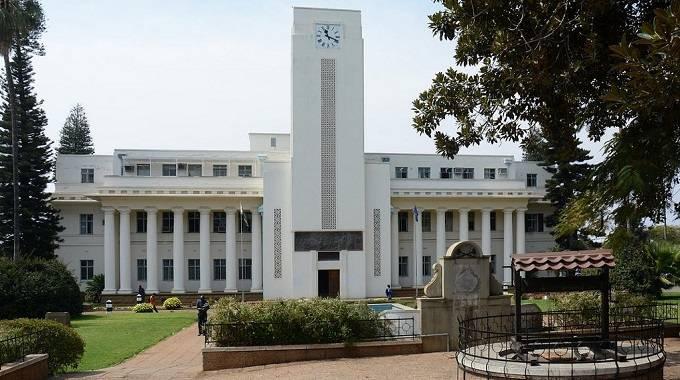News / National
Bulawayo councillor opposes water privatisation
01 Apr 2025 at 14:05hrs |
0 Views

A Bulawayo city councillor has urged the municipality to retain full control of the proposed water utility, arguing that local ownership is the best approach for managing the city's water supply.
Ward 25 Councillor Aleck Ndlovu stated that he would only support the establishment of a water utility if it remained entirely under the jurisdiction of the Bulawayo City Council (BCC), rather than adopting the privatisation model implemented in Harare.
"We had an engagement as a local authority with the Minister [of Local Government and Public Works] last week, and he did not mince his words on the issue of privatising water in Bulawayo," Ndlovu told Southern Eye. "Just as has been done in Harare, they are determined to do what Bulawayo residents have been saying they are afraid of."
Ndlovu stressed that municipal control would ensure that water revenues are reinvested into improving infrastructure, purchasing service vehicles, and acquiring essential tools for water management. He argued that a wholly council-run entity would be accountable to residents and better suited to serve public interests.
However, Local Government Minister Daniel Garwe recently stated that the government is "seriously considering" privatising Bulawayo's water supply system, a move that has sparked strong opposition from local rights groups and residents.
Garwe noted that the government is assessing water provision strategies for Bulawayo, including ongoing construction of the Gwayi-Shangani Dam and a pipeline to channel water to the city. He also highlighted potential benefits of privatisation, such as prepaid water metering, similar to the Zimbabwe Electricity Supply Authority (ZESA) billing system.
Despite these assurances, concerns remain. The Matabeleland Institute for Human Rights has called on residents to reject water privatisation, warning that it could lead to restricted access and increased costs. The institute's director, Khumbulani Maphosa, described privatisation as an "assault on the right to water" and cautioned that it could disproportionately affect vulnerable groups, particularly women and girls.
Reports indicate that BCC has engaged Dutch water utility Vitens Evides International to manage the city's water and sanitation services, raising fears that private companies may eventually take over, similar to how Tendy Three Investments was granted a contract to manage Bulawayo's parking system.
The government has previously faced backlash for its decision to privatise urban water services, including a deal with a Chinese company to build a water treatment reservoir for Harare. With opposition mounting, the debate over Bulawayo's water future is set to intensify in the coming weeks.
Ward 25 Councillor Aleck Ndlovu stated that he would only support the establishment of a water utility if it remained entirely under the jurisdiction of the Bulawayo City Council (BCC), rather than adopting the privatisation model implemented in Harare.
"We had an engagement as a local authority with the Minister [of Local Government and Public Works] last week, and he did not mince his words on the issue of privatising water in Bulawayo," Ndlovu told Southern Eye. "Just as has been done in Harare, they are determined to do what Bulawayo residents have been saying they are afraid of."
Ndlovu stressed that municipal control would ensure that water revenues are reinvested into improving infrastructure, purchasing service vehicles, and acquiring essential tools for water management. He argued that a wholly council-run entity would be accountable to residents and better suited to serve public interests.
Garwe noted that the government is assessing water provision strategies for Bulawayo, including ongoing construction of the Gwayi-Shangani Dam and a pipeline to channel water to the city. He also highlighted potential benefits of privatisation, such as prepaid water metering, similar to the Zimbabwe Electricity Supply Authority (ZESA) billing system.
Despite these assurances, concerns remain. The Matabeleland Institute for Human Rights has called on residents to reject water privatisation, warning that it could lead to restricted access and increased costs. The institute's director, Khumbulani Maphosa, described privatisation as an "assault on the right to water" and cautioned that it could disproportionately affect vulnerable groups, particularly women and girls.
Reports indicate that BCC has engaged Dutch water utility Vitens Evides International to manage the city's water and sanitation services, raising fears that private companies may eventually take over, similar to how Tendy Three Investments was granted a contract to manage Bulawayo's parking system.
The government has previously faced backlash for its decision to privatise urban water services, including a deal with a Chinese company to build a water treatment reservoir for Harare. With opposition mounting, the debate over Bulawayo's water future is set to intensify in the coming weeks.
Source - southern eye
Join the discussion
Loading comments…
































